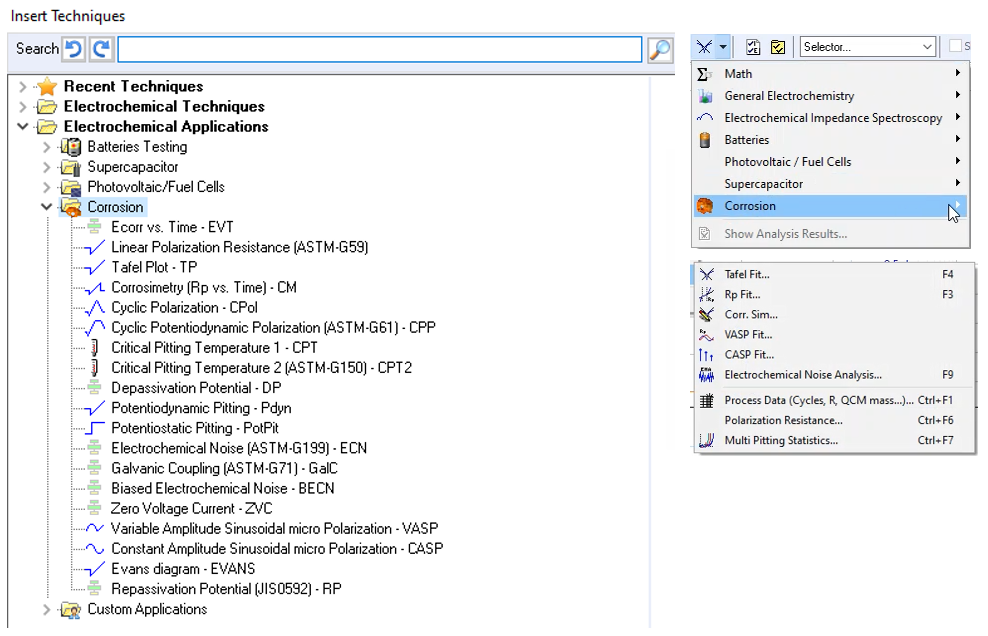Corrosion
Latest updated: December 17, 2024Here you will find a summary of all the corrosion techniques available with BioLogic’s instruments. Browse this section of the site to find self-help documentation relating to corrosion. You will find here a list of documentation that will help you get the most out of your instrument, together with more scientifically focused papers.
Please note that this database will be regularly updated with new documents and article links, so check back regularly.
Figure 1. What is corrosion? Corrosion is an electrochemical process involving the transfer of electrons between a metallic material and its environment. Corrosion is an unwanted spontaneous electrochemical process leading to a structural degradation of a material.
Electrochemical characterization of a corrosion system
Bulk/General electrochemistry corrosion (potentiostat)
The electrochemical characterization of a corrosion system consists of the determination of parameters like corrosion potential, corrosion current, Tafel parameters, pitting and repassivation potentials (for passivable materials), etc…
To learn more about corrosion theory, please refer to our article Corrosion basics.
In EC-Lab®, you can find both techniques and analysis tools dedicated to electrochemical corrosion. The corrosion techniques section is composed of both of AC and DC characterization and includes several standard methods (click here to find out more).

All these techniques are built upon the assumption that the electrochemical systems are tafelian (i.e. that the current flowing in the electrode is only limited by the electron transfer and not by mass transport) and are valid for a negligible ohmic drop. You can find more information respectively in Applications Notes 47 and 48.
Note: EC-Lab® Beginner? Check out our Getting started with EC-Lab®, including a Tafel Plot tutorial.
DC method
AC method
Note: Electrochemical lmpedance Spectroscopy (EIS) method is complementary to corrosion characterization. Find more information in our extensive documentation.
Simulation
For training or research purpose, you can gain a better understanding of the corrosion behavior of a material in a given environment thanks to our simulation tools Corr.Sim available in EC-Lab®. Check out our article on corrosion kinetics using Corr.Sim.
Local electrochemistry corrosion (scanning electrochemical workstation)
Traditionally, corrosion is investigated using bulk electrochemical techniques. However, when needing to understand what happen at a local level, for example at defect sites, measurement at the local level is necessary (for more information, click here).
Discover the family of techniques known as scanning probe electrochemistry with our dedicated article scanning probes & corrosion research and video.
You can find below a list of documentation dedicated to local electrochemistry corrosion.
Note: Are you a beginner with local electrochemistry investigation? Check out our numerous tutorials.





